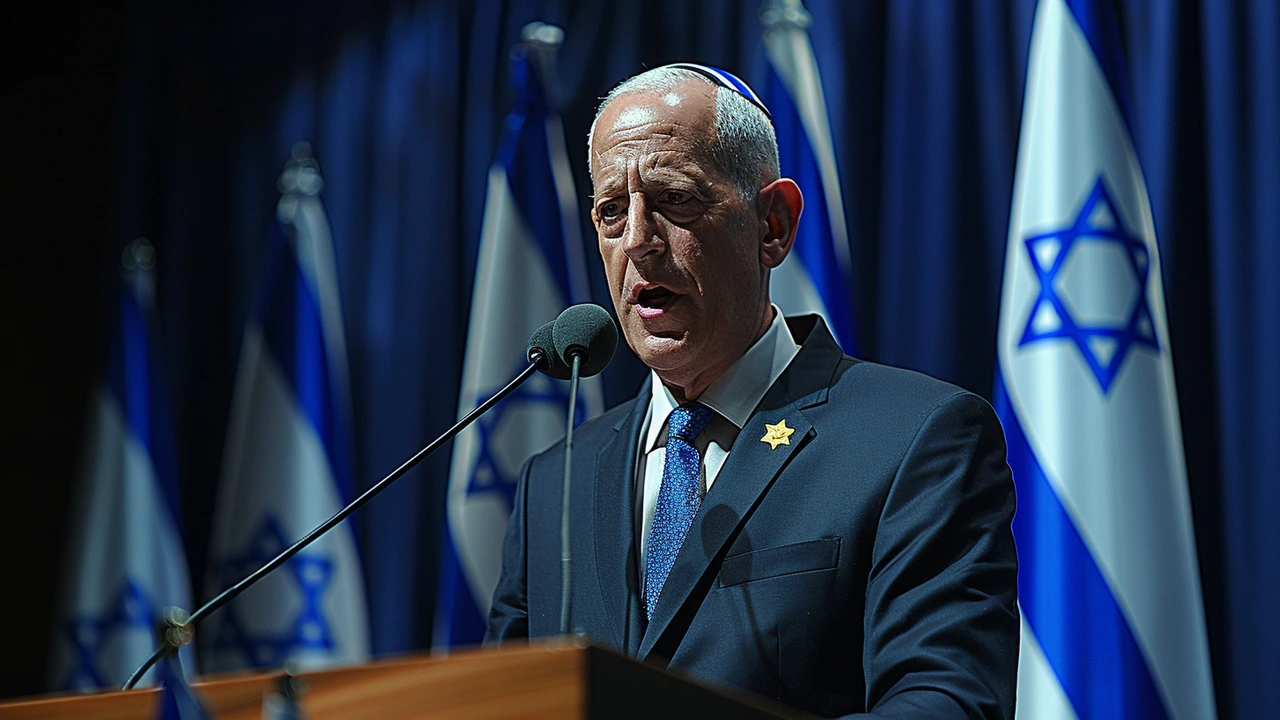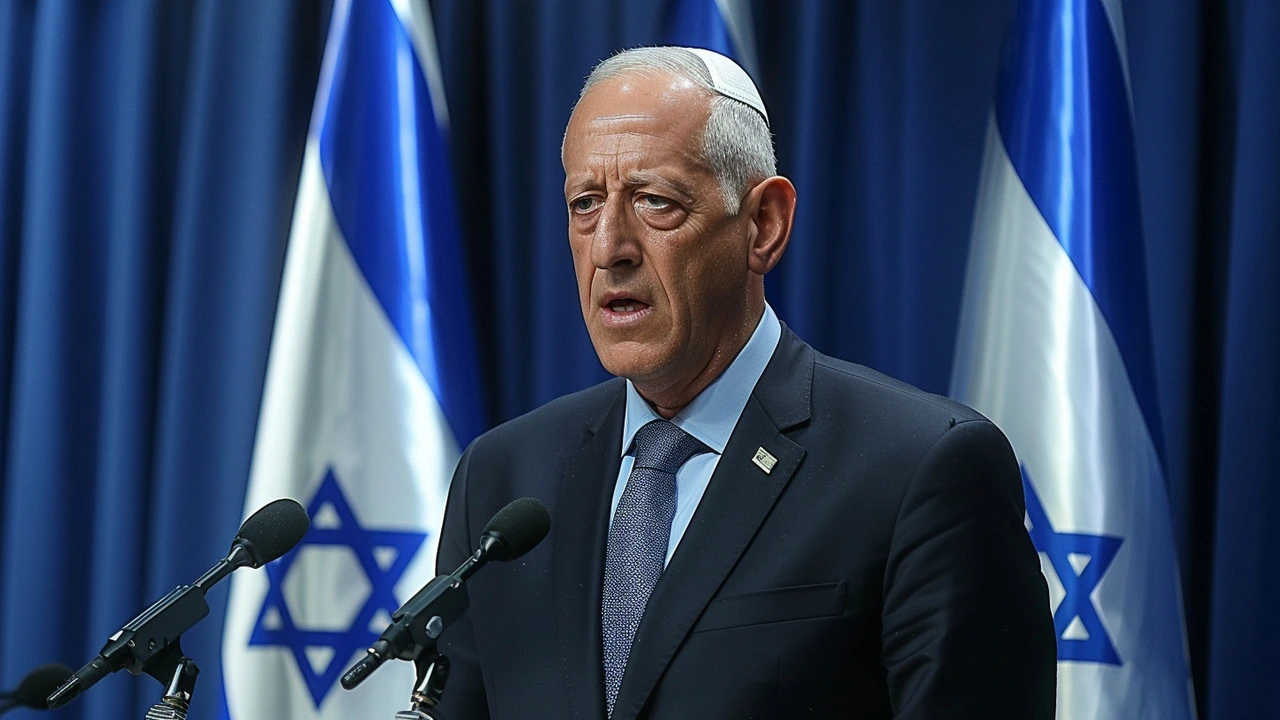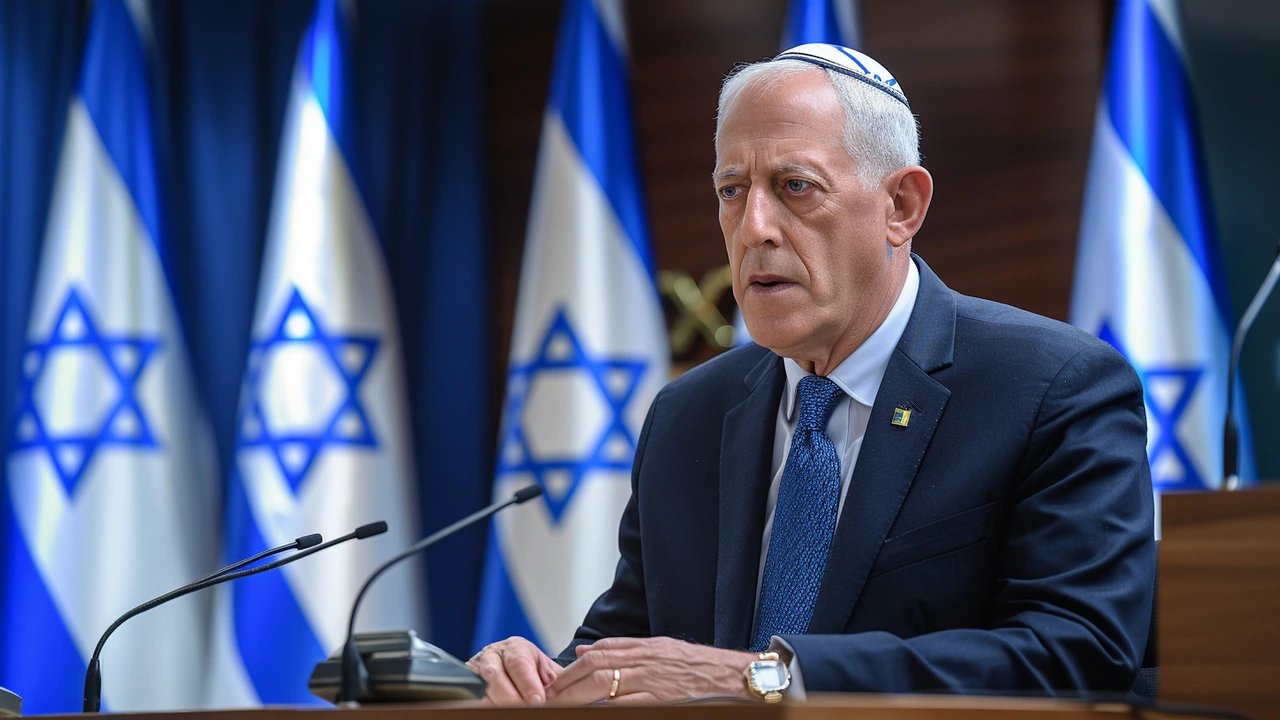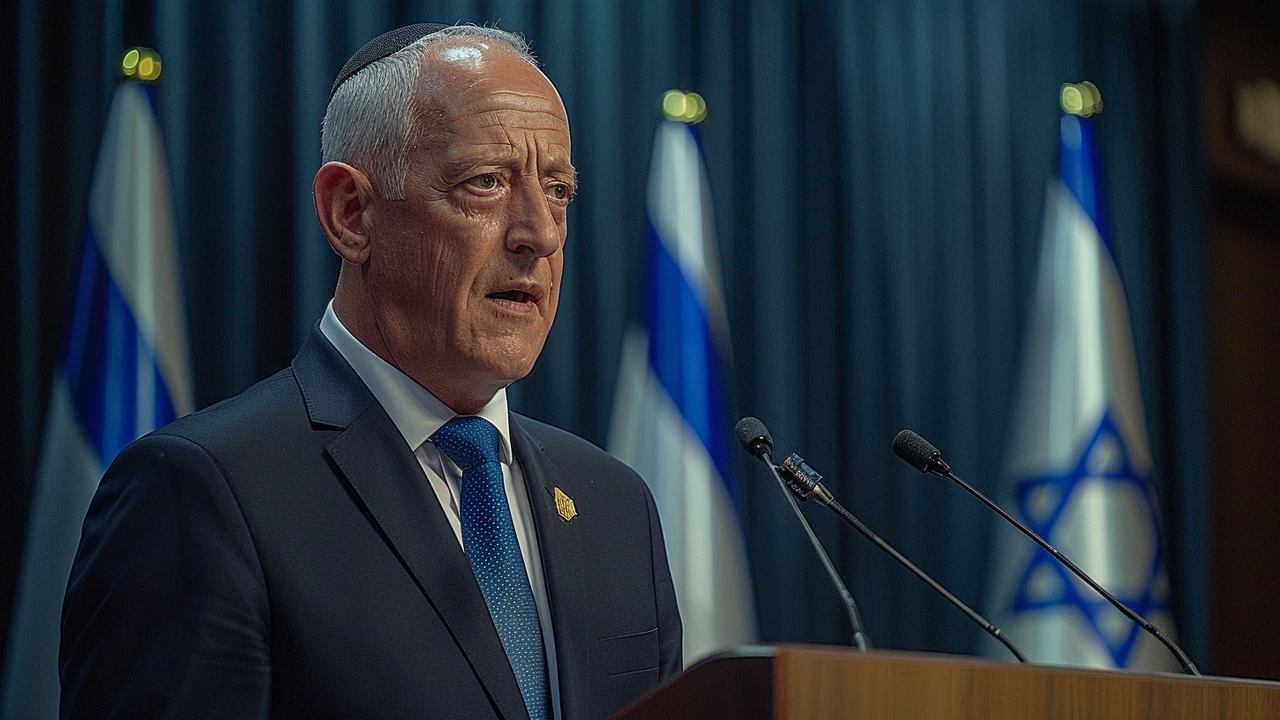Benny Gantz's Resignation: A Shock to Israel's Political Landscape
Israeli politics has been thrown into disarray as Benny Gantz, the leader of the Blue and White party and a former chief of the military, tendered his resignation from the government. This decision stems from his deep dissatisfaction with Prime Minister Benjamin Netanyahu's approach to the ongoing armed conflict in Gaza. Gantz, who was considered a crucial member of the 'war cabinet' alongside Netanyahu and Defense Minister Yoav Gallant, made this move after his calls for a clear plan to end hostilities went unanswered.

The Role of the 'War Cabinet'
The 'war cabinet' was established as a way to centralize decision-making during the fierce battle with Gaza's Hamas rulers. Its purpose was to ensure that military and policy decisions were streamlined and effective. As a former military leader and an experienced politician, Gantz's role was pivotal. He was tasked with working closely with Netanyahu and Gallant to shape strategic responses and coordinate high-level decisions. However, Gantz grew increasingly frustrated with what he saw as Netanyahu's prioritization of short-term political gains over long-term national interests.
Failed Deadlines and Mounting Frustrations
Gantz had given Netanyahu a deadline to present a concrete plan to end the conflict. This ultimatum was not just a political maneuver but a reflection of his growing concern for the damage sustained by both Israeli and Palestinian communities. When this deadline came and went without any substantial progress, Gantz felt he had no choice but to step down. He stated in his resignation speech that the Israeli leadership needed to focus on the welfare of its citizens and seek a sustainable resolution rather than getting entangled in political maneuverings.

Criticism of Netanyahu’s Policies
In his pointed exit speech, Gantz criticized Netanyahu for what he perceived as an inability to detach from political concerns. According to Gantz, Netanyahu's policies and public pronouncements were increasingly geared towards maintaining his political base rather than seeking peace or stability. Gantz accused the Prime Minister of losing sight of Israel's broader strategic interests – a charge that resonated with many Israelis wary of the prolonged conflict.
Possible Ramifications for Netanyahu’s Government
The implications of Gantz's resignation could be seismic. Considered a moderate and a voice of reason within the government, his departure might inspire others within Netanyahu’s coalition to reconsider their positions. Such an exodus could potentially unravel Netanyahu's grip on power, leading to political instability or even new elections. This instability comes at a critical juncture, with Israel deeply embroiled in a sensitive and enduring conflict.
Impact on the Gaza Conflict
While the immediate impact of Gantz's resignation on the Gaza conflict remains unclear, it highlights the divisions within Israeli leadership on how to handle this protracted crisis. One possibility is that his departure could expedite alternative diplomatic efforts. For instance, an American-backed ceasefire could come to the fore, or there might be renewed discussion on Saudi Arabia's proposal for Palestinian statehood in exchange for the recognition of Israel.

Future Strategies and Diplomatic Efforts
In recent months, there have been various behind-the-scenes negotiations aimed at de-escalating the situation in Gaza. Gantz’s departure might provide an opening for these efforts to gain traction, especially with international stakeholders who have been pushing for a ceasefire. The role of mediators, including Egypt and Qatar, who have historically played vital roles in brokering truces, might become even more critical now.
Emerging Voices: Gallant and Other Key Figures
Defense Minister Yoav Gallant, another key member of the war cabinet, will now face increased pressure to bridge the strategic gap left by Gantz. His decisions in the coming days and weeks will be closely watched. Gallant's stance on military operations, peace talks, and his ability to navigate the political landscape will be crucial in determining the next steps for Israel. Netanyahu, too, will need to reassess his approach, balancing the hardliners within his coalition with the broader strategic need for peace.
The resignation of Benny Gantz is not just a political event but a significant moment that could reshape the future of the Israeli-Palestinian conflict. With key voices demanding change, the path forward for Israel depends on a delicate balance of military strategy, diplomatic negotiations, and political maneuvering. As the situation evolves, the world watches closely, hoping for a resolution that brings lasting peace and stability to a troubled region.






Write a comment